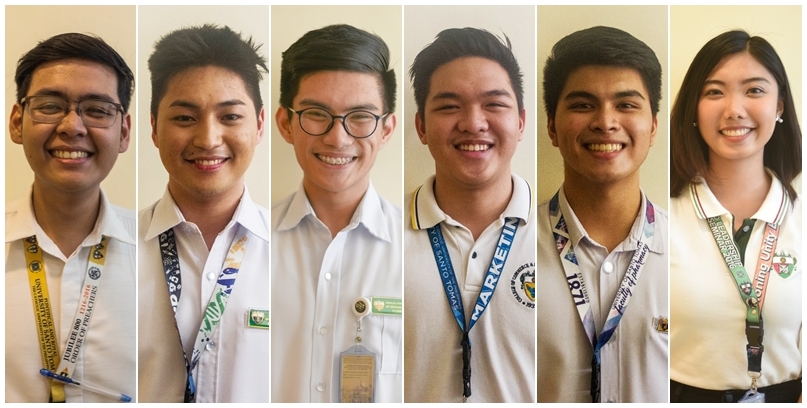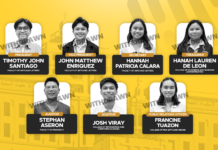THOMASIANS welcomed a complete executive board of the Central Student Council (CSC) after the release of election results last Saturday, but some expressed dismay over candidates’ lack of experience and awareness on social issues.
The next set of officers should take negative reactions from some Thomasians on social media as a challenge, said outgoing CSC secretary Therese Gorospe, the council’s acting president.
“I do hope that the incoming executive board will show their utmost commitment and render their hard work to the electorate… they should consider this as a challenge to serve [Thomasians] better,” Gorospe told the Varsitarian.
Jonathan Santos, outgoing president of the Faculty of Civil Law Student Council and Central Board of Students speaker, said discourse on social media helped raise awareness of Thomasians on the platforms of candidates.
“Retweets with comments greatly helped in the discourse. Lurkers had a glimpse, too, of the candidates’ progressive platforms. Not all of them though have progressive platforms but there is always room for improvement,” Santos said.
Raymond John Naguit, former vice chairman of the Central Commission on Elections (Comelec), said the removal of “abstain” played an important factor in the results.
The option would have forced political parties to invest more on the quality of their candidates, he said.
“Given the legal basis to back up, I feel that the inclusion of abstain would be a good stimulus for political parties to invest more on the quality of the candidates that they field and not be complacent during the campaign. After all, the worth and performance of a student council does not rely solely on having a complete set of officers,” Naguit said.
Nicolo Bongolan, a political science senior, said he had reservations on most of the candidates who won the elections.
“I’m satisfied with some of them. You cannot blame anyone…people voted for those who got elected. [But knowing] that the CSC is complete, I [am hoping] to see…the ideals of the students come full circle”
Pablo Foronda Tanglao, former chief of staff of the Senior High School Student Council, lamented that some candidates seemed “oblivious” toward social issues.
“[Some candidates who won] underperformed in the debates, have a slim track record of public service, and were oblivious towards social issues. [It is embarrassing] that these people became our officers,” he said.
Tanglao also took a swipe on candidates who claimed to have ran as independents but had the backing of political parties.
“There were still a plethora of candidates that claimed to be independent but were, and still are, operatives of traditional political parties,” he added.
Dennis Coronacion, chairman of UST’s political science department, said a complete council was a welcome development, and the removal of the option to “abstain” would serve the wider interest of the electorate.
“From the vantage point of the students, it is a welcome development since there will be more student leaders that can serve them. [T]he removal of the abstain option from the ballot, although misconstrued by many as a violation of their right of suffrage, actually serves the wider interest of the Thomasian electorate, as seen in the positive result of this election,” he said in an online interview with the Varsitarian.
Coronacion said the return of the electronic voting system and the simplification of the ballots were some of the strengths of the recent polls.
“Part of the strengths of the recently concluded elections is the re-introduction of technology during the voting process. The student voters were spared from what would have been a prolonged process of voting and waiting for the results if Comelec opted for the manual voting and counting,” he said.
Lawyer Enrique de la Cruz, an election law expert, attributed the increase in voter turnout to “more awareness, political maturity and effectiveness of the campaign.”
This year, 26,148 out of a population of 37,658 students, or 69.44 percent, participated in the University-wide student elections, an increase from last year’s voter turnout of 28,858 out of 43,762 students or 66 percent. With reports from Samantha-Wee Lipana and Julia Claire L. Medina
READ: CSC Executive Board has full slate next academic year











